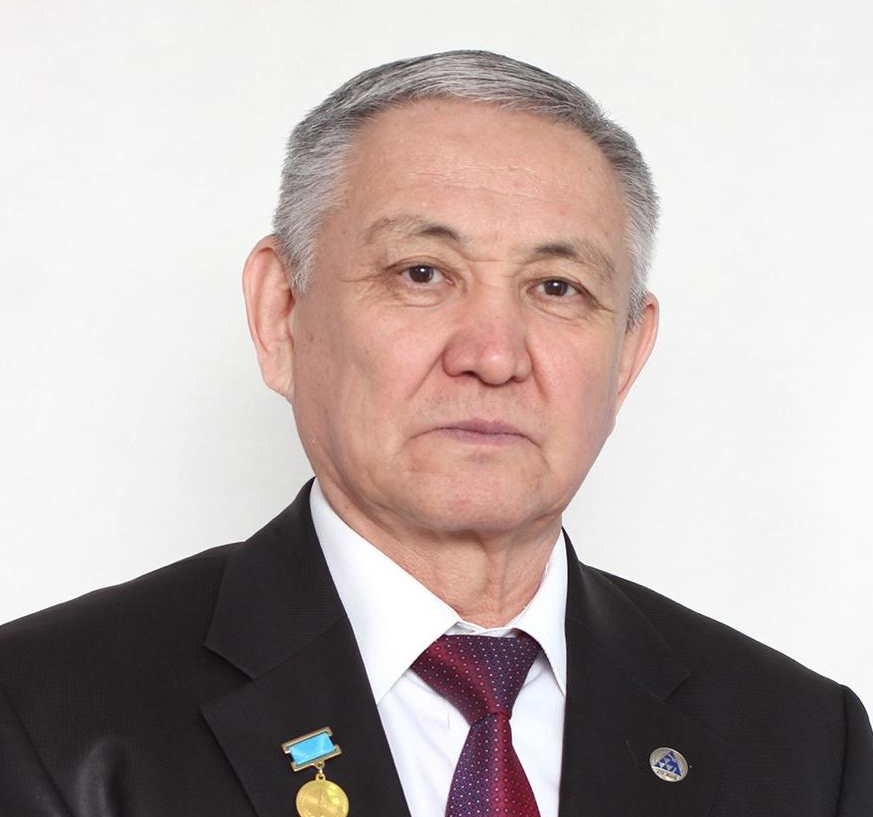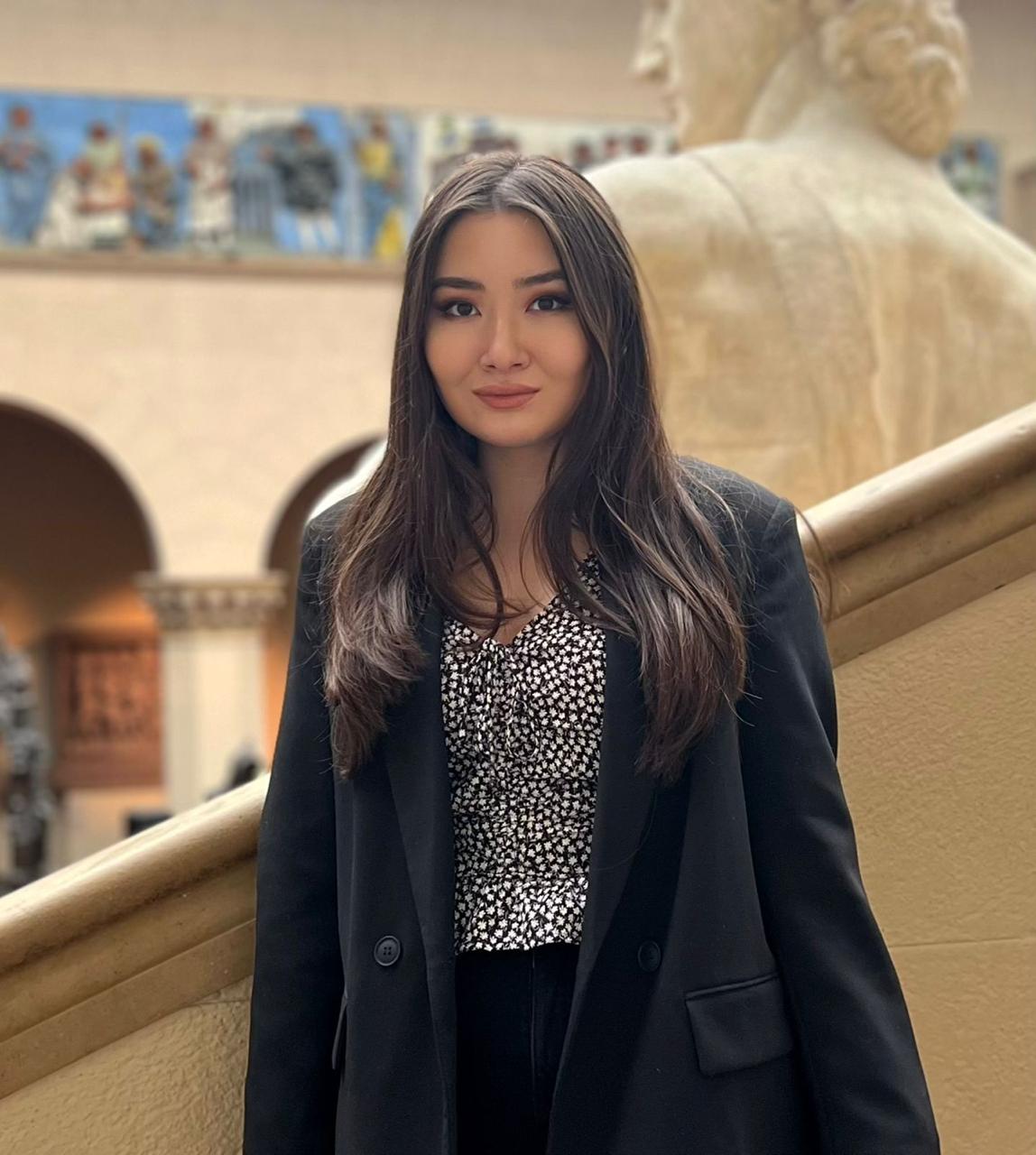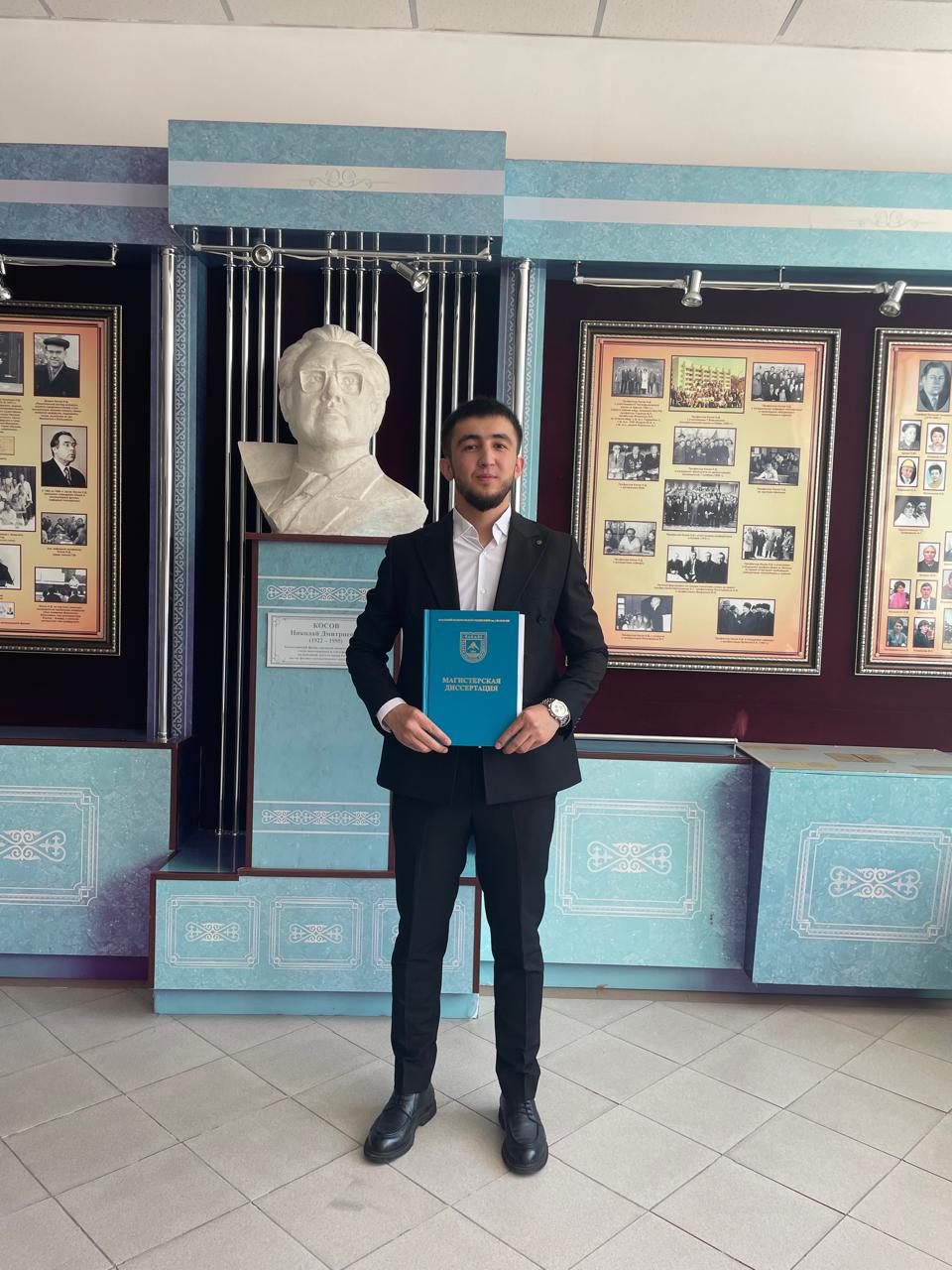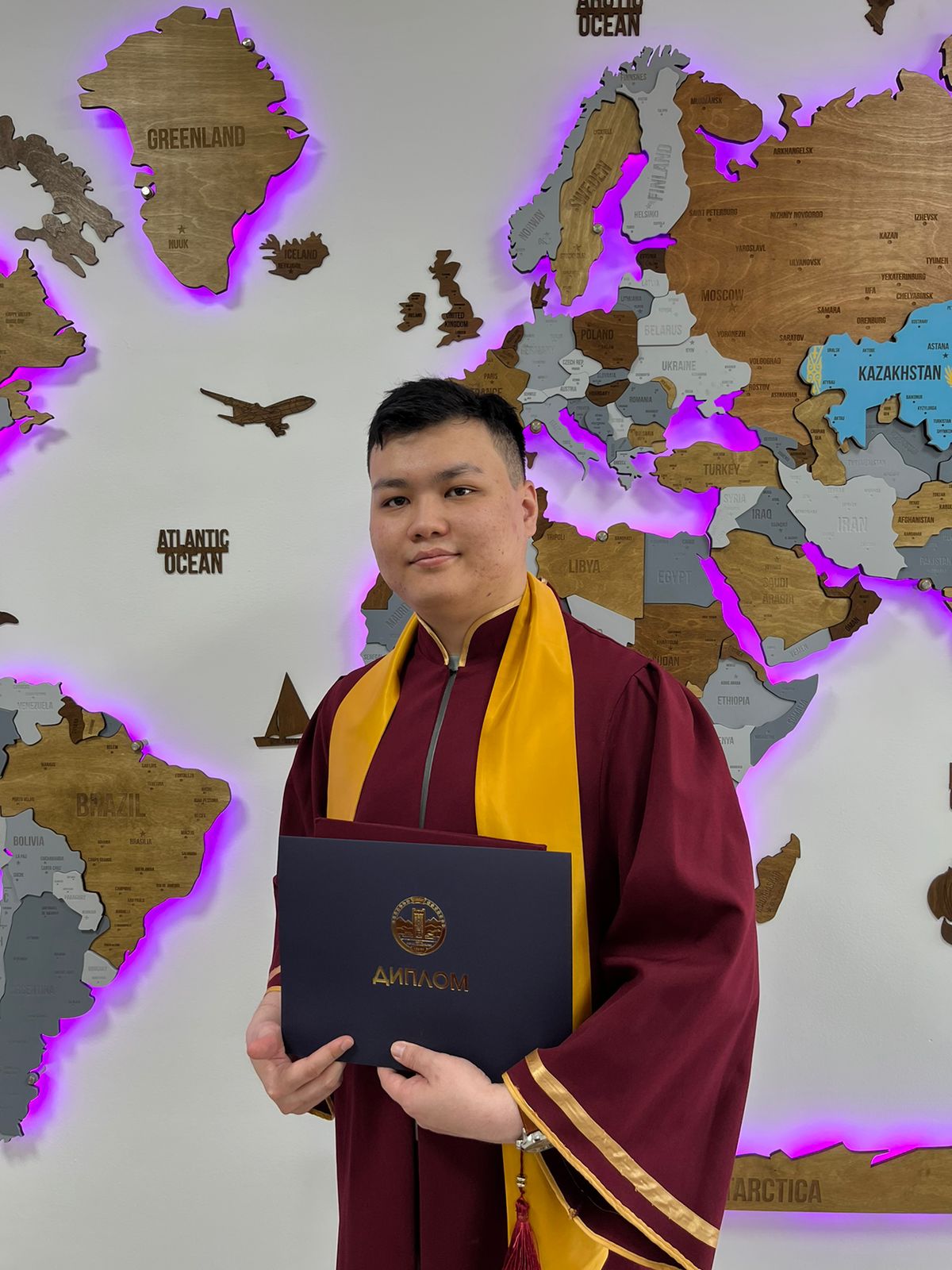
SHALGYMBAYEV SERIKBOL TILEULESOVICH
Laureate of the State Prize of the Republic of Kazakhstan in the field of science and technology named after al-Farabi (2015), as part of the team of scientists from RSE "National Center for Complex Processing of Mineral Raw Materials of the Republic of Kazakhstan" for the cycle of works on the topic "Industrial implementation of developments in the field of lead and gold metallurgy, which significantly contributed to the innovative development of the country and raised the prestige of Kazakhstan in the global technology market." Honorary academician of the National Academy of Sciences of the Republic of Kazakhstan, candidate of chemical sciences, associate professor, author of more than 200 publications, including two monographs and seven patents.
Serikbol Tileulesovich Shalgymbayev was born on August 26, 1953, at the Lepsy station of the Burlutobin district in the Taldykorgan (now Zhetysu) region. He lost his parents at an early age: his mother passed away when he was six years old, and his father died when he was nine. He and his four sisters were raised by their elder sister, Biken Tileulesovna.
In 1970, Serikbol graduated from high school No. 255 at Lepsy station and went to the city of Alma-Ata for the first time to enter the chemical faculty of KazSU named after S.M. Kirov (now KazNU named after al-Farabi). However, he did not pass the entrance competition and began working at the Lepsy metal hardware plant (the only plant in Kazakhstan at that time producing nails), first as a loader, then in a construction brigade. A year later, he returned to KazSU. The first exam in chemistry he passed with an "excellent" grade. The entrance exam was taken by a wonderful teacher, Satbek Tugankovich Omarov. He introduced the applicant to the legendary dean of the chemistry faculty, Batybek Akhmetovich Beremzhanov, saying: "This young man is excellently prepared. The decision is yours." The dean looked at the written work, asked a few questions, and told the applicant: "You will be admitted if you pass the rest of the exams." Serikbol Shalgymbayev passed the remaining exams successfully and easily met the admission requirements. Thus, he became a student of the chemical faculty of KazSU named after S.M. Kirov.
It was 1971. The most wonderful student years began.
In his first year, he especially remembered the group's curator, Mukhan Baypakbaevich Muratbekov, a remarkable lecturer and teacher. He taught inorganic chemistry, seemingly familiar basics, but presented it in a new way, which fascinated students. During lectures, he only needed one sheet with brief notes. All statistical data, constants, and reference numbers were in his memory, and he would write them on the board from memory. His lectures were so interesting, clear, and captivating that the students listened to him with bated breath. It was always like this. For them, that times freshmen, he was the best embodiment of a university teacher. As a curator, he could be said to have "lived" with the group, always being with them at all events and activities, and caring for each student.
In the second year, analytical chemistry was taught by the outstanding pedagogue and scientist Alexandra Ivanovna Zebreva. Serikbol's idea of a true scientist, formed from reading books, completely matched the image of Alexandra Ivanovna. The renowned professor Zebreva, a student of academician Kozlovsky (a representative of a notable generation of chemists), not only gave lectures but also personally conducted seminars and laboratory classes. She was so cultured and polite with students, always addressing them with "you," that it would be shameful to sit in front of her during an exam and not know something. Therefore, all students tried to prepare for her classes in such a way as not to spoil the pleasant interaction with her. She passed on not just her knowledge, but also a part of her heart and soul. And they tried to adopt her excellent human qualities: impeccable attitude towards work and people. Serikbol is sure, and always says, that many of his good qualities are owed to Alexandra Ivanovna. It is quite natural that later he requested to be assigned to the analytical chemistry department, where he also defended his course and diploma work. It was here that his mentor in both science and life, Mikhail Kasymovich Nauryzbayev, "picked him up." During his student years, as in school, Serikbol actively participated in public work in the Komsomol and student trade union, becoming chairman of the student council of dormitory No. 3. He was incredibly proud when, as a reward for his active public work, he was recommended among the best activists to be the first to exchange old Soviet passports for new ones. In 1976, he successfully defended his diploma work. His scientific supervisors M.K. Nauryzbayev and D.K. Mendaliyeva suggested he stay at the department.
Serikbol worked at KazGU from 1976 to 1987 as an engineer, a research trainee, a senior engineer at the analytical chemistry department, then as the head of the sector of galvanic coatings and printed circuit boards of the Special Design Bureau with an experimental production at KazSU.
From 1987 to 1989, he worked in the "Otrar" youth residential complex (MJK "Otrar") under the Almaty City Komsomol Committee (head of department, deputy chairman of the executive committee, and acting chairman of the executive committee of the Council of MJK "Otrar").
From 1989 to 1999, he worked in various positions in the central office of the Ministry of Education of the Republic of Kazakhstan: chief expert of the Main Department of Scientific Research Work, chief specialist of the Main Department of Higher Education and Science, assistant to the minister, head of the Administrative Affairs Department, head of the Analytical and Organizational-Personnel Support Department, and a member of the Ministry's collegium.
From 1999 to 2001, he was the director of the Almaty branch of the International Kazakh-Turkish University named after Yasavi.
In 2001, he returned to his alma mater and worked there until May 2008 as the pro-rector for general and production-economic issues at KazNU named after al-Farabi.
From September 2008, at the invitation of the President of the National Academy of Education of the Ministry of Education and Science of Kazakhstan T.O. Balykbaev (later rector of KazNPU named after Abai), he worked as the director of the Research Institute of Education Standards of the NAO of the Ministry of Education and Science of Kazakhstan, in Astana.
In 2010, he was appointed as the General Director of the RSE on PVC "Republican Scientific-Methodological Center for Technical and Vocational Education and Assignment of Qualification".
In February 2013, S.T. Shalgymbayev was appointed director of the branch of the RSE on PVC "National Center for Complex Processing of Mineral Raw Materials of the Republic of Kazakhstan" Kazmekhanobr State Scientific Production Association of Industrial Ecology (Kazmekhanobr). Under the leadership of S.T. Shalgymbayev, from 2013 to the present, many scientific research works have been carried out in Kazmekhanobr in the interests of the mining and metallurgical industry of Kazakhstan and foreign countries. A prominent example of positive results from this activity is the implementation at AO "FIK Alel" (East Kazakhstan region) of a unique innovative technology for extracting gold from refractory carbonaceous-arsenical products—HiTeCC (High Temperature Caustic Conditioning). HiTeCC is a high-temperature alkaline processing technology for sorption leaching tailings (CIL) that were previously sent to waste. The HiTeCC hot cyanidation workshop is the first in Kazakhstan and the second in the world (the first built in Australia).
Many enrichment plants and factories have been designed and commissioned, including the first state-affiliated gold refining plant in Kazakhstan (located in Astana) at TOO "Tau-Ken Altyn", with an environmentally friendly electrochemical technology.
Work in this direction continues...
Other news


